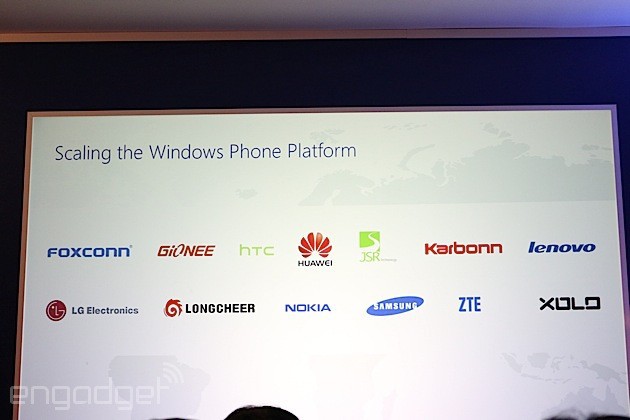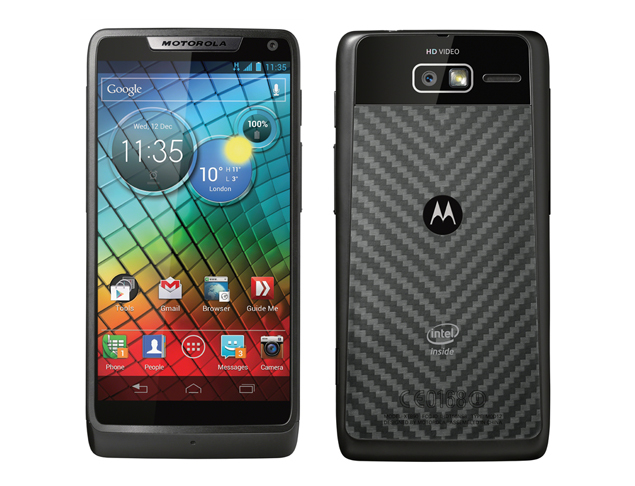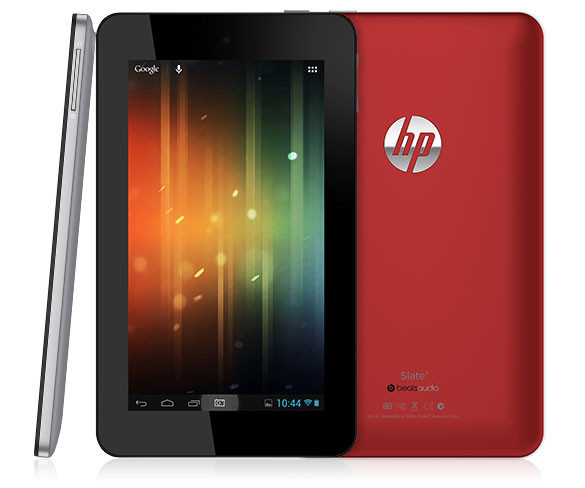Why does Intel make an alliance with Rockchip?
Yesterday a very curious press release fell into the mail - it is dedicated to a strategic agreement between Intel and Rockchip. The first one is well known to everyone as the leader in the market of processors for “full-fledged” computers and as one of the most eminent outsiders in the market of chipsets for mobile devices. The second is a factory-free company engaged in chipsets with ARM cores for cheap and ultra-cheap tablets. A year ago, Rockchip was almost the leader in its segment, meeting the competition except from Allwinner, but then MediaTek suddenly entered this segment with its highly integrated solutions. The latter are much easier to create the end device, since they do not require extra efforts to embed a modem, a GPS module and a number of other components. As a result, Rockchip's position weakened, but, nevertheless, given the growth of the market for these cheapest tablets, the company did not lose much in the last year.

In a press release on the alliance of Intel and Rockchip, it says literally the following: “ Intel announced a strategic agreement with Rockchip to expand the use of Intel architecture and communications solutions of the corporation in entry-level tablets based on Android platform ... Under the terms of the agreement, the company will develop a mobile Intel single-chip platform. The quad-core platform will be created on the basis of the Intel Atom processor core with integrated 3G modem technology from Intel ... Under the agreement, Intel and Rockchip will offer new products to their partners, OEMs and ODM companies . ”
')
Why all this is Intel? To begin with, it is worth noting that there are two Big American Corporations that have products for mobile devices that are not (at least) enjoyed any serious popularity. The first corporation is Microsoft: it offers various companies the greenhouse conditions for building devices on Windows Phone, which provide funding for the entire process. All this is being done to popularize Windows Phone as such, it is actually an investment in the future. Manufacturers also do not lose: they can actually get the product for free, and put the profits from sales in their pockets. That is why the manufacturers of "vinfonov" EXTREMELY has become so much:

Photos from the site Engadget
The second corporation is Intel. Its Atom (x86) chipsets are also not very popular, since almost all manufacturers of smartphones and tablets have been sitting on ARM for a long time and see no serious reason to get off this architecture. Therefore, Intel previously found not very well-known and / or experienced manufacturers and also helped in every possible way to create "atomic" devices for them - to popularize the platform for the sake of. That is why Intel Inside is written on all such products behind. Among them were noted, for example, Motorola, as well as a number of local Russian brands, including Digma. It is clear that the latter, and others like her, are selling devices from Chinese factories, and the participation of such brands in the development is about zero. But their brands are quite famous in the same Russia, which means they are valuable. If brands are not interested in the device, partner factories can even climb the wall - it will not help.

Motorola RAZR i Smartphone with Intel Inside Logo
However, it is known that, for example, Highscreen is not yet interested in creating such a device even with financial and technological assistance from Intel, since it will not have particular advantages. And the flaws can be revealed quite well - let's say, compatibility with modern 3D games for Android from Atoms is far from 100 percent.
In general, Intel has not only to create a new chipset, but also to find a device manufacturer and convince it to use this same chipset. Not so long ago, it seemed that Intel's business began to improve: the Atom appeared in the Samsung Galaxy Tab 3 10.1 tablet. However, Intel's Galaxy Tab 4 series models no longer have Intel chipsets - ostensibly due to weak sales of the 10-inch triple with Atom on board ... The Lenovo K900 was also based on Atom, but Lenovo allegedly did not like something the heir of this model - Vibe Z - "settled" Qualcomm. Moreover, Intel supposedly can completely leave the segment of smartphones and try its strength only in the tablet area.
What in the eyes of Intel is the Chinese Rockchip? A company with old, strong and well-established ties with hundreds of factories that produce tablets, as well as brands that sell these tablets. You don’t need to go far for examples - devices with iron Rockchip managed to “check in” almost all domestic brands offering electronics. And even some much larger "fish": for example, the company Hewlett-Packard. So, you really want to get access to the Rockchip partner base of the American corporation. For this you do not even have to sacrifice and risk something serious.

HP Slate 7 Tablet with Rockchip Chipset
Because Rockchip, of course, under the control of Intel, will develop a chipset with an integrated Intel 3G modem and an Intel processor. And it will also be offered under the brand name Intel. Rockchip will probably get a) money for this and b) experience. The latter is no less important, because today Rockchip is not the most advanced company in the field of creating hardware for mobile devices. For example, she does not disdain the outdated architecture of ARM Cortex-A9, and she does not have her modems, which is not very popular with device developers - you have to take third-party solutions and install them into your tablet, carefully adding software. For example, there is a tablet bb-mobile Techno 9.0 3G with guess which modem. In the development process, the Rockchip RK3188 chipset had to be combined with a 3G module. Then came the turn of the modification of bb-mobile Techno 9.0 LTE, and it was necessary to change the "design" by adding a Qualcomm LTE modem. Time and money is wasted on all this, since Rockchip does not have a ready-made solution. Meanwhile, cooperation with Intel, which is actively working in the LTE direction, may change this situation in the future ...

Bb-mobile Techno 9.0 LTE Tablet with Rockchip processor and Qualcomm LTE modem
I remember when Siemens announced a deal with BenQ Mobile, one of Nokia’s top managers commented on it like this: “Eagle chickens won’t come out of two chickens”. In the case of Intel and Rockchip, this predatory feathered one may also fail, but something more serious than a chicken will definitely be born. On the Intel side, technologies that, admittedly, are improving rather quickly, on the Rockchip side, a bunch of partners. The effect of cooperation will not be seen soon, since deliveries of the first atomic rockchip will begin only in 2015. Nevertheless, it will be very interesting to follow the development of the situation. Do you agree?

In a press release on the alliance of Intel and Rockchip, it says literally the following: “ Intel announced a strategic agreement with Rockchip to expand the use of Intel architecture and communications solutions of the corporation in entry-level tablets based on Android platform ... Under the terms of the agreement, the company will develop a mobile Intel single-chip platform. The quad-core platform will be created on the basis of the Intel Atom processor core with integrated 3G modem technology from Intel ... Under the agreement, Intel and Rockchip will offer new products to their partners, OEMs and ODM companies . ”
')
Why all this is Intel? To begin with, it is worth noting that there are two Big American Corporations that have products for mobile devices that are not (at least) enjoyed any serious popularity. The first corporation is Microsoft: it offers various companies the greenhouse conditions for building devices on Windows Phone, which provide funding for the entire process. All this is being done to popularize Windows Phone as such, it is actually an investment in the future. Manufacturers also do not lose: they can actually get the product for free, and put the profits from sales in their pockets. That is why the manufacturers of "vinfonov" EXTREMELY has become so much:

Photos from the site Engadget
The second corporation is Intel. Its Atom (x86) chipsets are also not very popular, since almost all manufacturers of smartphones and tablets have been sitting on ARM for a long time and see no serious reason to get off this architecture. Therefore, Intel previously found not very well-known and / or experienced manufacturers and also helped in every possible way to create "atomic" devices for them - to popularize the platform for the sake of. That is why Intel Inside is written on all such products behind. Among them were noted, for example, Motorola, as well as a number of local Russian brands, including Digma. It is clear that the latter, and others like her, are selling devices from Chinese factories, and the participation of such brands in the development is about zero. But their brands are quite famous in the same Russia, which means they are valuable. If brands are not interested in the device, partner factories can even climb the wall - it will not help.

Motorola RAZR i Smartphone with Intel Inside Logo
However, it is known that, for example, Highscreen is not yet interested in creating such a device even with financial and technological assistance from Intel, since it will not have particular advantages. And the flaws can be revealed quite well - let's say, compatibility with modern 3D games for Android from Atoms is far from 100 percent.
In general, Intel has not only to create a new chipset, but also to find a device manufacturer and convince it to use this same chipset. Not so long ago, it seemed that Intel's business began to improve: the Atom appeared in the Samsung Galaxy Tab 3 10.1 tablet. However, Intel's Galaxy Tab 4 series models no longer have Intel chipsets - ostensibly due to weak sales of the 10-inch triple with Atom on board ... The Lenovo K900 was also based on Atom, but Lenovo allegedly did not like something the heir of this model - Vibe Z - "settled" Qualcomm. Moreover, Intel supposedly can completely leave the segment of smartphones and try its strength only in the tablet area.
What in the eyes of Intel is the Chinese Rockchip? A company with old, strong and well-established ties with hundreds of factories that produce tablets, as well as brands that sell these tablets. You don’t need to go far for examples - devices with iron Rockchip managed to “check in” almost all domestic brands offering electronics. And even some much larger "fish": for example, the company Hewlett-Packard. So, you really want to get access to the Rockchip partner base of the American corporation. For this you do not even have to sacrifice and risk something serious.

HP Slate 7 Tablet with Rockchip Chipset
Because Rockchip, of course, under the control of Intel, will develop a chipset with an integrated Intel 3G modem and an Intel processor. And it will also be offered under the brand name Intel. Rockchip will probably get a) money for this and b) experience. The latter is no less important, because today Rockchip is not the most advanced company in the field of creating hardware for mobile devices. For example, she does not disdain the outdated architecture of ARM Cortex-A9, and she does not have her modems, which is not very popular with device developers - you have to take third-party solutions and install them into your tablet, carefully adding software. For example, there is a tablet bb-mobile Techno 9.0 3G with guess which modem. In the development process, the Rockchip RK3188 chipset had to be combined with a 3G module. Then came the turn of the modification of bb-mobile Techno 9.0 LTE, and it was necessary to change the "design" by adding a Qualcomm LTE modem. Time and money is wasted on all this, since Rockchip does not have a ready-made solution. Meanwhile, cooperation with Intel, which is actively working in the LTE direction, may change this situation in the future ...

Bb-mobile Techno 9.0 LTE Tablet with Rockchip processor and Qualcomm LTE modem
I remember when Siemens announced a deal with BenQ Mobile, one of Nokia’s top managers commented on it like this: “Eagle chickens won’t come out of two chickens”. In the case of Intel and Rockchip, this predatory feathered one may also fail, but something more serious than a chicken will definitely be born. On the Intel side, technologies that, admittedly, are improving rather quickly, on the Rockchip side, a bunch of partners. The effect of cooperation will not be seen soon, since deliveries of the first atomic rockchip will begin only in 2015. Nevertheless, it will be very interesting to follow the development of the situation. Do you agree?
Source: https://habr.com/ru/post/224527/
All Articles